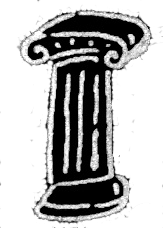Shut Up, I'm Reading
I remember the first time I held a crayon. The color (blue) and the iconic Crayola wrapper fixed themselves in my memory. But that memory was only retrieved, twenty-plus years later, when my two-year-old son fisted his first crayon.Crayons gave way, under first-grade teacher’s orders, to pencils and then, in third grade, a pen holder with its nib poised over an inkwell sunk in the corner of my school desk, the requisite yellow chamois somewhere at the mop-up ready.
While I was always reading, having discovered the book temple at the public library, I was also writing. But the desire to become a writer came as a wish to emulate 18-year-old Françoise Sagan when her first sensational novel, Bonjour Tristesse, took hold of me. Although I had just crossed into my teens, the notion of writing a book at my age—any age, I suppose—seemed suddenly possible. Plot did not interest me. Character and setting did. That was the appeal, the allure, of Bonjour Tristesse, it's emotional fragrance emanating from places and, especially, persons. And there was the throat-catching theme of adolescence betrayed. Always too young. Which is how I must have felt at that age, not realizing that that privilege of youth had a quickly cashed-in price.
"So writing for children is a double-downed effort to retrace our childhood memories..."
The wasteland that is youth is a well-trumpeted theme, one that poets from Homer to Shakespeare and just about everyone else, have crafted deathless lines. It's the hindsight that hurts.My favorite child writer — and a virtual star among "modern" poets — is, of course, Arthur Rimbaud. His renown and radical poems were preceded by poems written when he was 15 that followed French academic style but are now recognized as mature in style, content and form. When he lurched away from conventionality, inspired by the poetry of Baudelaire, his future fate would stun and humble the world.
That genius of the very young is always a risky gift. It took Rimbaud far into a darkening plane, so far that he abandoned it by the time he was 21 and disappeared into an entirely new, literature-free life, only to die at age 41.Now, what if we reverse that temporal outlook and consider how, even why, adults write books for children. Is it pedagogical — yes, to some degree. But isn't it more about invading the young minds of those we wish to be, to have been, or to shape the minds of our own children.
What does it mean to shape a child's mind? Those of us who grew up in a literate world inevitably have read books for children. And, of course, seen films and other media meant for children.Creating literature for children is a massive industry.Books for children who cannot read but who are read to seem to illustrate the internal drama that such books bring to the adult reader. These books now come with very strong, encompassing, world-embracing illustrations that typically spill all over the page. Children too young to read may be drawn to the illustrations but are unlikely to pair the meaning of the words with those images.
There have not been that many serious researchers into the minds of children — Jean Piaget, Margaret Mahler, Daniel Stern — but, of course, any observational study always is contaminated by observer bias. Freud had proposed that our dreams, that royal road to the unconscious, brought forth experiences from childhood. But we now know that memory, however vivid and however it is retrieved (even in dreams) is contaminated by the present context which re-edits even are sharpest, pinpoint-iest memories. In effect, for every one of us, our childhood is lost to us. Even traumatic memories are not indelible, though the effects may march on through life. Indeed, all of the effects of childhood march on through life as they fill out our personalities.
So writing for children is a double-downed effort to retrace our childhood memories, re-animate them and re-invent them, and then grind them back to the language we think children understand. Books we remember and books we cherish from childhood were, in effect, vampiric installations of adult ideas into our child reader minds.Not that we should stop writing children's books, that is, books for children. But we should at least own up to the little invasions of childhood they may become.
Let me write you a story.

